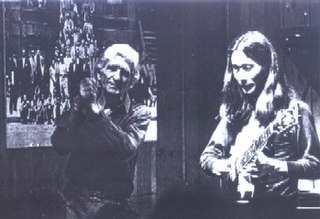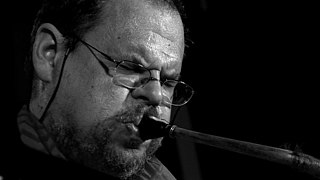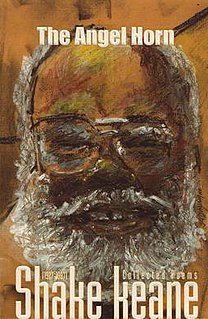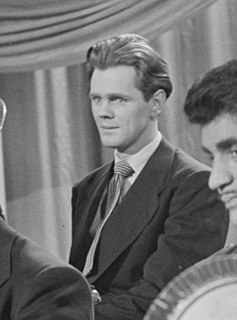Joe Tarto (February 22, 1902 - August 24, 1986) was an American jazz tubist and bassist. [1]
Jazz is a music genre that originated in the African-American communities of New Orleans, United States, in the late 19th and early 20th centuries, and developed from roots in blues and ragtime. Jazz is seen by many as "America's classical music". Since the 1920s Jazz Age, jazz has become recognized as a major form of musical expression. It then emerged in the form of independent traditional and popular musical styles, all linked by the common bonds of African-American and European-American musical parentage with a performance orientation. Jazz is characterized by swing and blue notes, call and response vocals, polyrhythms and improvisation. Jazz has roots in West African cultural and musical expression, and in African-American music traditions including blues and ragtime, as well as European military band music. Intellectuals around the world have hailed jazz as "one of America's original art forms".
Tarto (born Vincent Joseph Tortoriello) played trombone from age 12 before settling on tuba as a teenager. He played in an Army band in World War I, where he was wounded, and received his release in 1919. In the 1920s he worked with Cliff Edwards, Paul Specht, Sam Lanin, and Vincent Lopez, in addition to doing arrangement work for Fletcher Henderson and Chick Webb and playing in pit orchestras on Broadway. He also recorded copiously throughout the 1920s, accompanying musicians including Bing Crosby, The Boswell Sisters, Ethel Waters, Eddie Lang, Joe Venuti, Miff Mole, Red Nichols, The Dorsey Brothers, Bix Beiderbecke, and Phil Napoleon.

World War I, also known as the First World War or the Great War, was a global war originating in Europe that lasted from 28 July 1914 to 11 November 1918. Contemporaneously described as "the war to end all wars", it led to the mobilisation of more than 70 million military personnel, including 60 million Europeans, making it one of the largest wars in history. It is also one of the deadliest conflicts in history, with an estimated nine million combatants and seven million civilian deaths as a direct result of the war, while resulting genocides and the 1918 influenza pandemic caused another 50 to 100 million deaths worldwide.

Clifton Avon Edwards — known as "Ukulele Ike" — was an American musician, singer, actor and voice actor, who enjoyed considerable popularity in the 1920s and early 1930s, specializing in jazzy renditions of pop standards and novelty tunes. He had a number-one hit with "Singin' in the Rain" in 1929. He also did voices for animated cartoons later in his career, and is best known as the voice of Jiminy Cricket in Walt Disney's Pinocchio (1940) and Fun and Fancy Free (1947).

Paul Specht was an American dance bandleader popular in the 1920s.
In the 1930s he spent to years playing with Roger Wolfe Kahn, then worked extensively as a session musician both on tuba and double bass. He also played with radio ensembles and in theater and symphony orchestras. He remained active as a performer into the 1980s, playing in Dixieland jazz revival groups in his last years.

Roger Wolfe Kahn was an American jazz and popular musician, composer, bandleader and an aviator.

Session musicians, studio musicians, or backing musicians are musicians hired to perform in recording sessions or live performances. Session musicians are usually not permanent members of a musical ensemble or band. They work behind the scenes and rarely achieve individual fame in their own right as soloists or bandleaders. However, top session musicians are well known within the music industry, and some have become publicly recognized, such as the Wrecking Crew, and The Funk Brothers who worked with Motown Records.












